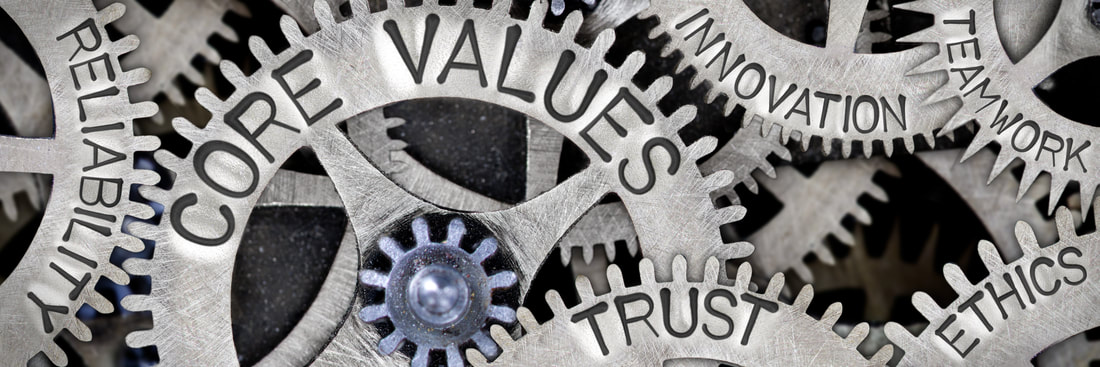|
The belief that more hours at work equate to higher productivity is a myth.
This misconception has been deeply ingrained in our professional lives, leading us to sacrifice health, relationships, and leisure to pursue an elusive ideal. Actual productivity is not about stretching our workdays thin but thriving across multiple dimensions of our lives. Productivity isn't a linear concept. It's a multidimensional phenomenon that goes beyond professional achievements and encompasses the following dimensions:
0 Comments
In the corporate landscape, our weeks are filled with situations that test our abilities, patience, and resilience. How we approach these situations can profoundly affect the outcome and our reactions.
When faced with complicated situations, we immediately label them as 'problems.' What if we started viewing these as 'challenges' instead? This subtle shift can result in a transformative mindset change. The Power of Perspective A 'problem' often carries a negative connotation, suggesting something that shouldn't exist, an anomaly that needs fixing. On the other hand, a 'challenge' implies an opportunity for growth, a hurdle that, once overcome, leads to advancement and self-improvement. Consider the difference in perspective here:
The challenge mindset is proactive, seeking growth and understanding, while the problem mindset can be limiting and reactive. Are you facing an important decision and asking yourself what to do?
Effective decision-making is a critical skill for any leader, and your choices can significantly impact your team, organisation and personal life. This 7-step process ensures that the chosen solution is the best possible outcome for all three: 1️⃣ Identify the problem or opportunity Gather all the facts and data. Analyse them thoroughly and objectively. The more facts and data you have, the more equipped you are to make an informed decision. 2️⃣ Define your criteria for success Clear criteria will help you evaluate options objectively to make an informed decision. Considering factors such as values, strengths, and alignment with your vision for the future will determine whether your decision is informed. Building trust within a team isn't just about improving performance; it's about forging a workplace culture that aligns with integrity, innovation, and shared success.
When trust is the cornerstone of your leadership, solving complex problems becomes a collective endeavour, and creating lasting change becomes a shared mission. A team that trusts its leader is a team that's committed, resilient, and ready to go above and beyond. But how do you earn this trust? Empathy It's about demonstrating that you prioritise your team’s well-being. For instance, recognising the importance of work-life balance isn't just about offering flexible hours—it's about respecting those hours. When your team knows their time is valued, they're more invested during working hours. Whether it excites us or paralyses us, change is an inevitable part of life and leadership. In today's fast-paced and dynamic business world, leaders must navigate change successfully to ensure that they and their organisations can adapt, grow, and thrive. In this article, we'll explore seven key strategies that you can use to develop the skills and mindset needed to navigate change successfully.
In the multifaceted world of leadership, age is a number. However, emerging leaders often face a unique challenge – leading individuals who may have been in the field longer or might view age as a measure of expertise.
I've helped countless young leaders overcome this dynamic. This article is for you if you are an emerging leader looking to command respect despite your age. Age vs. Leadership: The Misconception There's a common misconception that age and experience are the sole determinants of leadership capabilities. While experience has value, leadership is more about the ability to inspire, influence, and guide others toward achieving shared goals. Leadership is also about adaptability, vision, and the ability to foster collaboration – qualities that aren't exclusive to any age. Why is responding ignored? Is it not a sign of respect, a sign of kindness just to respond with 1 word even? Is it time consuming?
I know that we receive nowadays many invitations, many marketing materials, people reaching out to people to either connect or find synergies. An over flux of information that a busy professional cant always follow or has the desire even to spend energy on a response. Or spend time on it as we are overloaded and feeling exhausted. If you put yourself in the shoes of the person who asked and you don’t get a response, how would you feel? Offended, not taken seriously, not being recognized? As business owners, we reach out to people, and I do the same. On the other hand, I receive lots of requests as well, offers and marketing requests via email, over Instagram, Facebook and Linkedin. Having worked in the supply chain field in big organizations for quite some time, I have heard a few times how number-driven we are, how we trust metrics, lean six sigma methods over an empathetic, listening and coaching approach.
I can counteract this argument with an authentic success story, a story of people over numbers. It is January. It is raining. It is cold and foggy. The holidays are just over and a big project meant to improve the warehouse operations of our third party logistics is assigned to me. It is the kind of project that has a huge scope, resources still unknown, challenging timelines and tons of traveling involved. Sound familiar? Well, it turned out to be one of the greatest personal experiences and most successful projects I have ever worked on. And you know what made it such a masterpiece? People. Yes, you heard that right: People. "Finding yourself is the most fundamental endeavour of your life." - Friedrich Nietzsche Many of us submit to the comfort of living in our herd, but this doesn't have to be you. Through personal transformation, you can find what you value personally and break free from imposed beliefs by creating your own.
I got to a point in my life where I went on a journey to find myself. I took time out to think about what I really wanted, what my life would look like if I knew I couldn't fail. My herd would have kept me in a legal career; what about all my other interests and passions? I decided to pluck up the courage and follow my aspirations of being a therapist. My herd thought that I was strange; I just wanted to explore how I could help people in a more emotional way as well as a practical way through law. On my journey, I met phenomenal people. I realised that this 'self-awareness' is the foundation of being a great leader. This article describes four simple steps based on Nietzsche's philosophy that will get you started on finding yourself. The first step toward change is to acknowledge that there is a problem. One of the worst mistakes founders and execs will ever make is to hire or promote someone into a leadership role who manages through an insatiable ego as their driving force for every thought and decision.
But it happens. And when hubris becomes a stronghold in your culture, it can be the cause of much conflict and unneeded drama for employees. A quick example: Managers who destroy morale by putting themselves on a pedestal as the source for all the answers, and use it to wield power over their people. The damaging effects of hubris Research says that people exhibiting "hubristic pride" (as opposed to a more healthy and authentic pride) were found to be narcissistic, reflecting feelings of arrogance, grandiosity, and superiority. They also experienced more interpersonal conflicts and, ironically enough, were prone to shame. Truth is, these people hurt businesses in many ways. In my own observations as an executive coach, I have seen these behaviors in leaders exhibiting hubristic pride:
A trait so often overlooked in identifying true leaders. Warren Buffett, chairman and CEO of Berkshire Hathaway, has wise hiring advice for companies seeking good leaders.
While you may think his advice is firmly entrenched in the common sense camp -- I mean, it should be a non-negotiable requirement when hiring for top leadership positions, right? -- it's often not common practice. Buffett once said, We look for three things when we hire people.
Core values are personal to each individual. They can be described as your code of ethics, your fundamental principles, your standards, or personal rules. I like to refer to them as the bricks you build your foundation on. Knowing what you truly value in life, what makes you feel fulfilled and gives you a sense of meaning, connects you to your true self and is an important part of your personal development. Core values are about YOU – not what society, the media, your education, your colleagues and friends or family deem as important, or of value, but what is important to you, what you value. Stress tends to set in when you are not treating these values with the respect they deserve. Not respecting your core values means you are not respecting your true self. In turn your self-esteem could suffer, which of course in turn decreases the quality of your day-to-day life. When the feeling of being calm and peaceful is present, and the quality of day-to-day life is high, you feel good about yourself and who you are. Your self-esteem and self-worth benefit from this. Caroline Myss, a five-time New York Times bestselling author and internationally renowned speaker in the fields of human consciousness and mysticism, says, “Being able to speak and live with the truth, your truth, means you have to become comfortable with having your power, be comfortable with all that is true about you, all that is beautiful about yourself, this is being okay with yourself.” Consider the Core Values Process I offer as a gift to yourself. The focus can be on your life, your overall life which would include your career, your career alone or your leadership values (this is a great exercise to do as a new leader or to update your existing leadership skills aligning them with your personality). by Suzie Doscher, Executive Coach, Life Coaching - Focusing on Personal Development, Self-help Author: Balance - a Practical Handbook for Life's Difficult Moments Photo credit: Shutterstock Set up a Core Values Process with Suzie Doscher or contact any of our coaches for a free introductory session.You did it. You made it out — hopefully with some shred of sanity and sense of personal self-worth. But even if those things feel unrecoverable, they aren’t. You can get them back.
Maybe you’ve moved on to greener pastures. If that’s the case, well done. You’ve taken an important step towards preserving (or gaining back) your emotional and physical health. Maybe, although less likely, your boss either moved on or was fired. Most of the time, these situations don’t fix themselves, as for some reason senior leadership would rather keep a single toxic boss employed than the multiple high-quality employees who leave because of them. In either case, there’s a residual emotional and physical toll that lasts well beyond the end of the boss-employee relationship. I know; I’ve been there. In the span of just two years of reporting to a toxic boss, I went from being a high-performing, high-potential engineering leader to nearly leaving the company I’d spent 15 years at because of one single person. My boss. That’s how badly I needed to get away from her. One of the hardest jobs a leader has is giving corrective feedback to someone whose behavior is difficult, aka "the difficult employee." This person's behavior is adversely affecting the team, not just you. You've tried all the soft approaches like ignoring the behavior, making a joke about it, dropping hints -- and still he persists.
Finally the time has come to deal with this head on. You need to give him straight feedback. Most people would rather scratch their fingernails down a chalkboard than do that, but, hey, you are the leader, so it's your job. You bravely say yes, but wonder privately if, by talking to him straight, you're going to make things even worse. What if you could give this feedback to him in a way that would solve the problem and even enhance your working relationship with him? What if he would actually thank you at the end of the conversation, grateful that you cared enough to talk to him about it? This is possible! Here are 5 steps to follow in order to to make the biggest difference possible. You might consider experimenting with these steps also when the stakes are lower, BEFORE an employee get labeled as "difficult." 1. Prepare for the conversation ahead of time.
One of the most powerful words in the English lexicon today is “trigger.” We are finally accepting that there is a spectrum of internal and external influences that can legitimately take us off course. We understand that a person, place, object, event, even a smell, can trigger an emotional response so potent, we can be transported back to a trauma we’ve worked hard to forget or come to terms with. These triggers can threaten our well-being and disrupt feelings around our core values. They can appear out of nowhere and make us feel powerless.
As an aspiring leader, a trigger can become your biggest obstacle. A strong, effective leader needs to be able to identify their emotional triggers, understand what can set them off, and steel themselves when these triggers threaten to topple everything they’ve worked for. Here are some strategies to help you identify and deal with those triggers so you can grow and develop into the leader you are meant to become. By Karen Bridbord, Ph.D., Licensed Psychologist and Organizational Consultant
When I wrote about the inflection of workplace culture back in May, I was expecting the pandemic to be a distant memory by now. Remember when we all thought it was going to last three weeks? Yet today, six months into the most significant global health crisis of our lifetime, we find ourselves still grappling with uncertainty. Instead of creating new rituals to uplift and ground us as we find ourselves, as I recommended in the beginning of the pandemic, we now must find a way to sustain ourselves. We’re collectively exhausted. This pandemic is a marathon, not a sprint, and we need to act accordingly. This includes adjusting our company values and how they’re operationalized in our organizational cultures. By Suzie Doscher, Executive & Life Coach and Self-help Author
When a company focuses solely on reaching targets and continually pushes employees to reach these goals, the side effects often result in a high turnover and burnout rate. Ironically, this can cause the company NOT to achieve its targets in the desired timeframe. Pushing too hard in one direction results in an inevitable push back from the opposite direction. This is a law of nature that applies to the business world as well. Stressed employees trying to reach sometimes unrealistic or unnecessary targets tend to operate at half of their capacity. They start to make mistakes and lose track of the details amid their overwhelming work schedules. They tend to suffer physically exhaustion as well. All of this hurts productivity, the very thing the company is trying to increase. By Justin Black, Head of People Science, Glint Platform at LinkedIn
For organizations around the world, the past several months have brought a wave of unknowns. How do we set up our workforce to be successful in a fully remote setting? How do we make sure they’re safe, supported, and informed as things rapidly change? When will we return to the office and what will the impact be on our employees? The ambiguity is compounded by COVID-19’s novelty — no real playbook exists to help organizations respond and recover from a modern pandemic. CEOs and HR leaders have looked to health and safety officials, peers, and industry experts to help guide their plans. By Marcel Schwantes
In 2016, the World Economic Forum released its fascinating Future of Jobs Report, where they asked chief human resources officers from global companies what they saw as the top 10 job skills required for workers to thrive by 2020. One skill projected for success in 2020 that didn’t even crack the top 10 list in 2015 was — you guessed it — emotional intelligence. According to many experts in the field, emotional intelligence has become an important predictor of job success for nearly two decades, even surpassing technical ability. In one noteworthy CareerBuilder survey of more than 2,600 U.S. hiring managers and human resources professionals, it was found that “fifty-nine percent of employers would not hire someone who has a high IQ but low [emotional intelligence].” In fact, 75 percent of survey respondents said they’re more likely to promote someone with high emotional intelligence over someone with high IQ. Companies are placing a high value on workers with emotional intelligence for several reasons. In my own studies and observations over the years as a leadership coach, here are six that really stand out.... 'Grin and Bear It' Is Wrong. Here's What Great Leaders Understand About Emotional Intelligence.13/2/2020 Aytekin Tank
Opinions expressed by Entrepreneur contributors are their own.“One of the things that I was told early on is that you should never let them see you sweat,” Ursula Burns once said in an interview. Burns, then-CEO of Xerox, was reflecting on leadership advice she had received over the years. She continued, “I remember hearing that and saying: ‘Oh, my God! I think that they have to see you sweat.’” When I first read that interview, I was a few years into launching JotForm and was still figuring out my leadership style. I had figured that the best leaders were stoic types -- Teflon-strong with impenetrable poker faces. Burns’ words were kind of a revelation. Could emotions be a strength rather than a weakness? In times of stress -- and in the startup world -- those are far from uncommon. Should entrepreneurs share, rather than smother their feelings? By Adam Fridman
"Purpose Inspires, Values Guide, Habits Define." Purpose is the why of your organization. Purpose is what gives work meaning. But purpose is in danger of becoming "GWOP" - Goals Without Plans - unless it is aligned with your culture. Putting it another way, purpose is about where your company's journey is taking you. Culture is the combination of values and habits that will get you there. Purpose, Values or Culture: What's the Difference? Some people confuse the ideas of purpose, values and culture. They are three similar but distinct concepts. If purpose, values and culture were a math equation, they'd look something like this:
By Jessica Hicks, Editorial Fellow at Thrive Global
Knowing how to delegate is essential to successful leadership, but it’s a skill that can be challenging. Some managers don’t like to hand over responsibility, while others might be nervous about appearing disengaged — but what these leaders don’t realize is that delegating can provide growth opportunities for their colleagues, and reduce stress for the entire team. Plus, managers need additional support. A recent Gallup report found that managing various types of employees and stakeholders can escalate stress for managers, who “need protected time to think, do their own work, and respond to requests.” If you’re a manager who’s unsure how to hand over a task, check out these tips to make the process more thoughtful and effective: By Rebecca Muller, Assistant Editor at Thrive Global It’s incredibly gratifying to achieve a goal you’ve set for yourself, but the real challenge often begins after you hit your target, when you have to maintain the practices you have begun in order to see prolonged success. According to a new Stanford study published in the Journal of Personality and Social Psychology, individuals are more likely to continue their positive habits after the fact if they see their goal achievement as “completing a journey” instead of “arriving at a destination.” The researchers looked at people who managed to reach their individual goals and continued succeeding afterward, and asked which mindset allowed for their continued wins. “This question is critical, because it helps us to redefine success,” study co-author and General Atlantic Professor at Stanford Graduate School of Business, Jennifer Aaker, Ph.D, explained in a statement. “It moves us from focusing on the short-run win associated with attaining a goal, to the longer-term benefits associated with continued improvement after the goal.” Dianna Anderson,
Dianna is the thought leader behind Cylient's unique, comprehensive approach for instilling coaching cultures. Is building a coaching culture for your enterprise a strategic priority for your organization in 2019, or does it fall further down the list in the “nice to do someday” category? If building a coaching culture isn’t at the top of your priority list, here’s why I think it should be: I believe that many of the top priorities that Learning and Development professionals focus on are actually symptoms of using traditional “direct and correct” leadership approaches to try to manage our current multifaceted, ever-changing work environments. Here’s why I think that: When people lead by telling people what to do, and then correcting them when they think they are “wrong,” it teaches the people they are leading to:
1 Super Rare Sign That Proves You Are Meant to Lead People (But May Cause a Gag Reflex for Most)1/5/2019 By Marcel Schwantes, Principle and Founder, Leadership from the Core
In an effort to increase leadership thinking and awareness about the new measures of success, this one may be hard to swallow for some of my readers, but here it goes. Research on positive organizational scholarship has revealed a powerful weapon for creating happier workplace cultures and more loyal and committed employees who produce better work. It comes down to one word: kindness. Before I get into the business case for kindness, I have to ask: Why don't we see more kindness at work? Why aren't more decision makers jumping on this bandwagon, if it means leveraging it for business impact and bottom line results? Because the perception of this soft and fuzzy word implies that it's only fit for "doormat" and weak leaders, much like other counterintuitive powerhouse leadership words like empathy, transparency, and vulnerability. And that's a shame. |




















 RSS Feed
RSS Feed